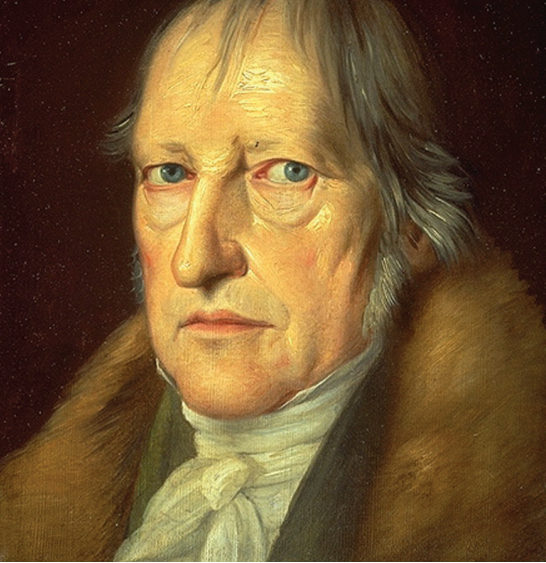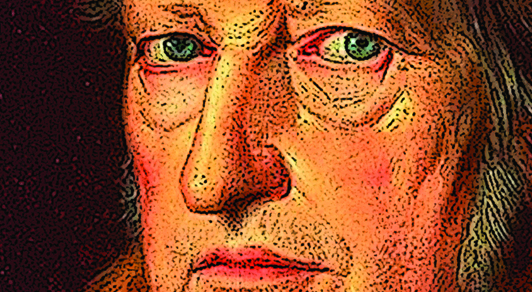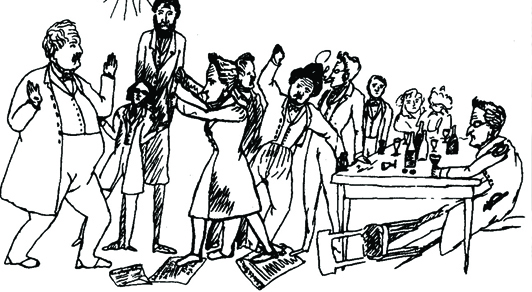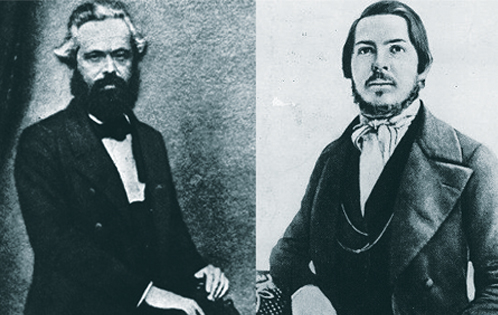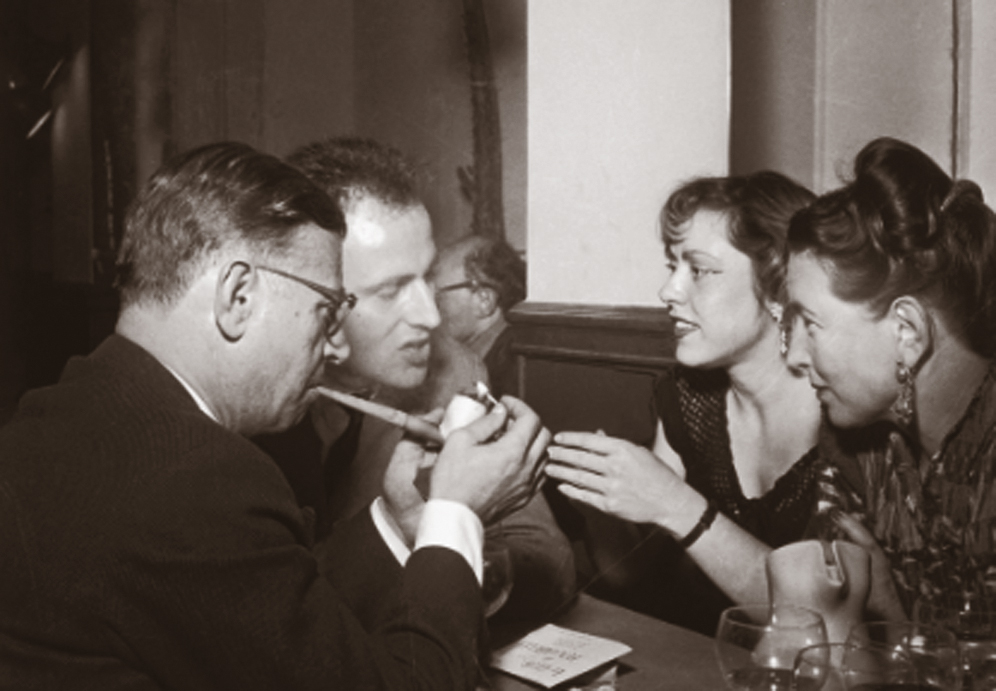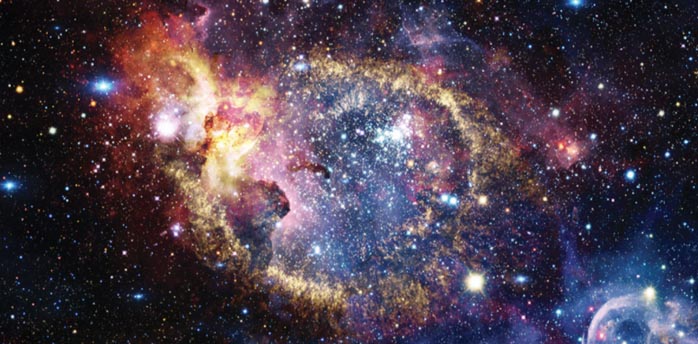philosophy
Hegel’s Science of Logic
Hegel’s Science of Logic is considered by many the most important and developed of all of Hegel’s works. It is essential for understanding Hegel’s other works and therefore it is essential for understanding the works of Marx and Engels as well.
Hegel’s Phenomenology of Spirit
Hegel's Phenomenology of Spirit is generally considered the first exposition of and an introduction to Hegel's later work, what is often referred to as Hegel's “system.” Thus, knowledge of the Phenomenology is indispensable for anyone interested in today's world.
The Young Hegelians (1831-1842)
The course will run for 14 weeks on Friday evenings from 6:00 PM to 8:00 PM starting September 16, 2016 and continuing until December 16, 2016. We will be reading the book The Young Hegelians: An Anthology, edited by Lawrence S. Stepelevich.
Marx and Engels: 1841-1844
This course will focus on two early works by Marx and one by Marx and Engels. The works by Marx are his doctoral dissertation of 1841 on ancient Greek atomistic theory and his Critique of Hegel’s “Philosophy of Right” from 1843. The work by Marx and Engels is The Holy Family, or Critique of Critical Critique of 1844.
Les Temps Modernes: The Early Decades
This class will examine the first decades of its existence, when such important works as Sartre’s What is Literature appeared in it, as well as the first installments of Beauvoir’s The Second Sex. It will focus on its political positions, as Sartre first attempted to set up a third-way party...
Les Temps Modernes: The Early Decades
This class will examine the first decades of its existence, when such important works as Sartre’s What is Literature appeared in it, as well as the first installments of Beauvoir’s The Second Sex. It will focus on its political positions, as Sartre first attempted to set up a third-way party...
The Orient: Foucault’s Achilles’ Heel
New Perspectives Theatre 456-458 West 37th Street, New York, NY, United StatesThis talk will explore the intellectual sources of Foucault’s anti-humanist approach to non-western cultures as it documents his personal disorientation and struggles in Tunisia, Iran and Japan.
Realistic Metaphysics and the Materialist Conception of History
Online: Zoom link will be provided to registered participantsMarxism's central preoccupation has been that of *class* consciousness. Marx spoke of the working class’s need to transform itself from a class *in itself* (en sich) into a class *for itself* (für sich). After two decades of revolutionary defeats and counter-revolutionary triumphs Trotsky described the situation as “the crisis of proletarian leadership.”
But these were prescriptions, now plainly further from realization than ever. In describing the proletariat as the “universal class,” Marx projected that by establishing its dictatorship (ie., radical democracy) in the proximate interest of all its members, the proletariat begins the human historical project of complete transcendence of class society. The present crisis, however, demands that this concept of “universal” be deepened and enriched. The politics based on consciousness of proximate material interest must give way to the politics of a *planetary* consciousness. The final line of our anthem, “l’Internationale sera le genre humain,” should now be taken literally.
Realistic Metaphysics and the Materialist Conception of History
Online: Zoom link will be provided to registered participantsMarxism's central preoccupation has been that of *class* consciousness. Marx spoke of the working class’s need to transform itself from a class *in itself* (en sich) into a class *for itself* (für sich). After two decades of revolutionary defeats and counter-revolutionary triumphs Trotsky described the situation as “the crisis of proletarian leadership.”
But these were prescriptions, now plainly further from realization than ever. In describing the proletariat as the “universal class,” Marx projected that by establishing its dictatorship (ie., radical democracy) in the proximate interest of all its members, the proletariat begins the human historical project of complete transcendence of class society. The present crisis, however, demands that this concept of “universal” be deepened and enriched. The politics based on consciousness of proximate material interest must give way to the politics of a *planetary* consciousness. The final line of our anthem, “l’Internationale sera le genre humain,” should now be taken literally.
Realistic Metaphysics and the Materialist Conception of History
Online: Zoom link will be provided to registered participantsMarxism's central preoccupation has been that of *class* consciousness. Marx spoke of the working class’s need to transform itself from a class *in itself* (en sich) into a class *for itself* (für sich). After two decades of revolutionary defeats and counter-revolutionary triumphs Trotsky described the situation as “the crisis of proletarian leadership.”
But these were prescriptions, now plainly further from realization than ever. In describing the proletariat as the “universal class,” Marx projected that by establishing its dictatorship (ie., radical democracy) in the proximate interest of all its members, the proletariat begins the human historical project of complete transcendence of class society. The present crisis, however, demands that this concept of “universal” be deepened and enriched. The politics based on consciousness of proximate material interest must give way to the politics of a *planetary* consciousness. The final line of our anthem, “l’Internationale sera le genre humain,” should now be taken literally.

